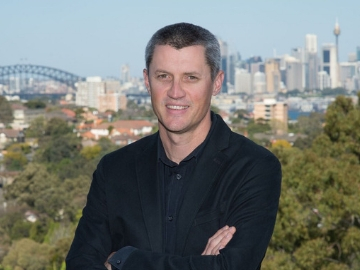Ian Perrin’s best of 2019: The importance of finding people who don’t give a shit about advertising
To end 2019 on a positive note, Mumbrella’s Brittney Rigby asks a number of media agency chief executives to share their best part of the year, both professionally and personally. Here, Speed’s Ian Perrin shares his highlights.
Ian Perrin’s soccer team “[doesn’t] give a shit” about advertising. And that’s just the way he likes it.
Three years ago, when he started independent media agency Speed, he realised he was in control of his own work/ life balance. So, he joined Curl Curl FC, the club his daughter and son play at every Saturday. “We used to be shit and we still are shit, but got a little bit lucky this year,” he tells me. By “lucky”, he means they got into the grand final, “thought we’d be thrashed”, and then, like any good underdog, won, 4-0.
“At my age, that was pretty cool,” he laughs.


